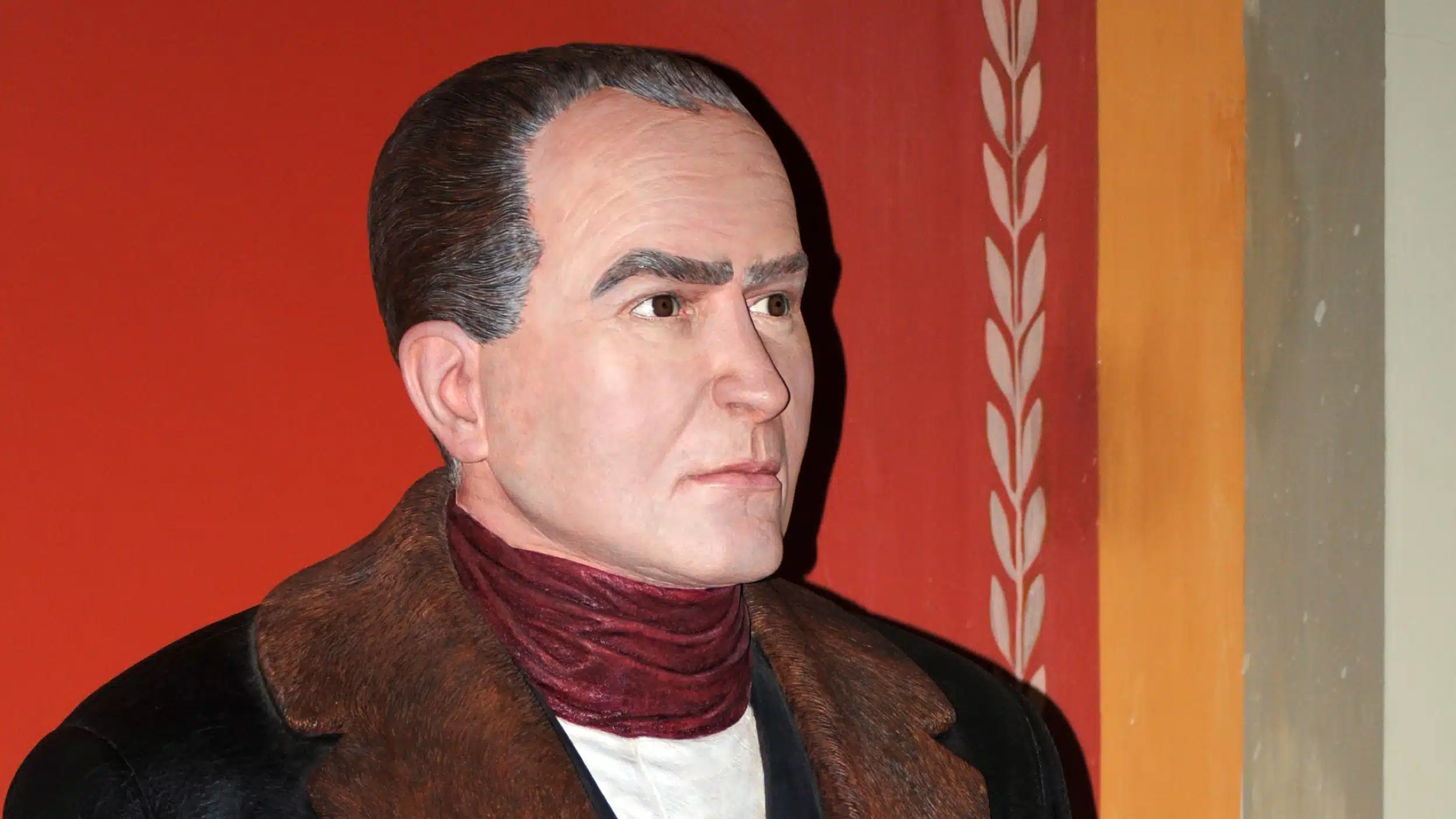You must own property to vote in this Rhode Island fire district’s elections
By Steve Ahlquist in UpRiseRI
 |
| Statue of Thomas Wilson Dorr on display at the Rhode Island State House. He fought to stop the state's practice of restricting the right to vote to white men who owned property. |
The BSFD annual meeting and election
is on Saturday, June 24, 2021. (See flyer below)
In 1841 Thomas Wilson Dorr led the Dorr Rebellion in an attempt to expand voting rights beyond
the white male property owning elites of Rhode Island, and though the rebellion
failed, the greater point eventually won out. In 1928 the Rhode Island General Assembly finally
repealed municipal property requirements limiting the right to vote in
municipal elections.
The ACLU of RI’s brief, filed by cooperating attorneys James Rhodes and Lynette Labinger, notes that the Fire District “exercises broad government powers” that include the adoption of “ordinances whose violation may be punished with fines and terms of imprisonment.”
The brief argues that in “restricting the right to vote to
certain ‘property owners,’ the BSFD follows in a long, justifiably discredited,
history in this country and state in restricting the right to vote to a favored
class.” Among those excluded from voting are individuals who rent property
within the district or are spouses or adult children of title holders.
EDITOR'S NOTE: There are seven fake Fire Districts along RI's south coast. By "fake," I mean fire districts that do not actually fight fires but instead serve as homeowner associations as well as tax shelters for rich coastal property owners.
Recently, Alex Lopez, the South County Bureau chief for RI's The Public's Radio, has written some great articles on fake fire districts and restricted beach access. Read them HERE and HERE). I wrote pieces in Progressive Charlestown about fake fire districts and property tax abuses (HERE and HERE and HERE). Charlestown has two fake districts: Shady Harbor and Quonochontaug Central.
Fire districts such as Charlestown, Dunn's Corner, Cross Mills, etc. that actually do protect the public from fire are great, But fake fire districts that fail to deliver fire protection service should be stripped of their perks. - Will Collette
In their brief the ACLU of RI labels
BSFD’s restriction on the right to vote to property owners “a throwback to
earlier, long-discredited notions of who is entitled to participate in our
state and local government.” The ACLU of RI discussion of the history of
voting rights in the brief in Rhode Island makes for
interesting reading.
“The charter of the Bonnet Shores
Fire District appears caught in a time loop that has ignored the evolution of
voting rights in the United States and Rhode Island since it was first enacted
in 1932,” writes the ACLU of RI in their brief. “This relic of a period of
widespread disenfranchisement is unconstitutional and cannot endure.”
The lawsuit should come as no
surprise to the BSFD. In August of 2019 the Rhode Island Secretary of State‘s office sent a letter to BSFD
Board Chair Michael Vendetti explaining
that the fire district’s voting provisions conflicts with a 1981 Rhode Island Supreme Court ruling, Flynn v King,
regarding voting rights of residents of the West Glocester Fire District.
The Secretary of State advised the
BFSD to review their charter and make any necessary changes to ensure it is not
in conflict with the Supreme Court decision, but when a motion was made by
board member Anita Langer discuss
the Secretary of State’s letter at a BSFD board meeting, no one on the board
seconded the motion and the topic was shelved. (Anita Langer did not respond to
UpriseRI’s attempts to contact her in time for this story.)
Flash forward to April 2020 when
seven plaintiffs – Mary Burke
Patterson, Robert E
Patterson, Melissa Jenkins, Valerie Ann Henry, Paula Childs, David H Stenmark, and Carol M Stenmark – bring a
lawsuit against the fire district.
Melissa Jenkins tells UpriseRI that
she was “was denied a ballot to vote even though I was a registered voter who
lives full time in Bonnet.” Jenkins declined to say more given that the lawsuit
is in process. In response to the lawsuit the BFSD board voted to
retain Tom
Dickinson as legal counsel to answer the complaint and provide a
“projection of future costs” to fight the lawsuit.
“Expanding the right to vote to all
people has been a critical multi-generational fight here and across the
country,” said ACLU of RI cooperating attorney James Rhodes. “Until every one
of our local governments are elected by the people they serve, our work is not
done. Participation in free and fair elections, whether it be for president,
state legislature or local fire district, is the cornerstone of our democracy.”
UpriseRI reached out to
historian Rory Raven, who
wrote the book, The Dorr War:
Treason, Rebellion and the Fight for Reform in Rhode Island in
2010.
“Voting rights have not been
dependent upon property ownership in Rhode Island since 1843,” said Raven to
UpriseRI. “Governor Thomas Wilson Dorr, a reformer and a hero too often
overlooked, literally led the charge to expand voting rights to include those
who did not own land.
“[Dorr] recognized the injustice of denying the vote on such arbitrary grounds, and understood that restricting the vote would produce an unrepresentative government, which would only lead to further injustices,” concluded Raven. “He was a man ahead of his time, and trying to return to the bad old days of property-requirements would probably just make him roll over in his grave.”
